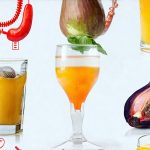Bladder stability is often something we take for granted until it’s disrupted. For many individuals, especially those experiencing conditions like overactive bladder (OAB), interstitial cystitis (IC), or simply increased urinary frequency and urgency, seemingly innocuous choices – like what you drink – can significantly impact their daily lives. The connection between fluid intake and bladder health is profound; however, it’s not always about reducing fluids, but rather optimizing the types of fluids consumed. Many common beverages contain ingredients that can irritate the bladder lining or increase urinary production, exacerbating symptoms. This article will delve into the best low-sugar drink options to support a more stable and comfortable bladder, helping you navigate choices beyond water alone while considering how different drinks influence bladder function.
Understanding why some drinks are problematic is key. High sugar content isn’t just an issue for overall health; it can directly contribute to bladder irritation. Sugar feeds yeast and bacteria in the body, potentially leading to imbalances that affect the urinary tract. Additionally, certain artificial sweeteners and acidic ingredients found in many popular beverages can be strong bladder irritants for sensitive individuals. Caffeine, a diuretic, increases urine production, putting more stress on the bladder, while alcohol similarly impacts hydration and can irritate the bladder lining. The goal isn’t necessarily to eliminate all potentially triggering drinks (although that might be necessary for some), but to become informed about alternatives that are gentler on your system and contribute to overall bladder health. If you’re also considering dietary changes, exploring smart grocery choices can further support bladder wellness.
Understanding Bladder Irritants in Common Drinks
Many seemingly harmless beverages harbor hidden threats to bladder stability. Carbonated drinks, even sugar-free varieties, can mechanically irritate the bladder due to their bubbles and acidity. Citrus juices – orange, grapefruit, lemon – are notorious for their high acidity which can cause significant discomfort for those with IC or OAB. Similarly, tomato juice and cranberry juice (despite its reputation for urinary tract health) often contain high levels of acidity that can be problematic. Alcohol, as previously mentioned, acts as a diuretic and irritant, while caffeinated beverages – coffee, tea, energy drinks, many sodas – increase urine production and can worsen urgency and frequency. Even seemingly healthy options like grape juice can be high in sugar, contributing to inflammation and bacterial growth. Recognizing these potential triggers is the first step towards making informed choices.
The impact of these irritants isn’t uniform; individuals experience varying levels of sensitivity. What causes significant problems for one person might have minimal effect on another. This makes identifying personal triggers crucial. Keeping a bladder diary – recording what you drink, when you drink it, and any associated symptoms – can be immensely helpful in pinpointing specific problem beverages. It’s also important to consider the concentration of these irritants. A small amount of lemon juice in water might be tolerable, while a large glass of straight lemonade could be significantly more problematic. This personalized approach is vital for effective bladder management.
Finally, it’s worth noting that artificial sweeteners are often included as “bladder-friendly” alternatives but can ironically cause issues for some individuals. While they eliminate sugar, many artificial sweeteners have been linked to digestive upset and even bladder irritation in sensitive people. Experimentation and careful observation of your body’s response are essential when exploring these options.
Best Low-Sugar Drink Options for Bladder Support
Prioritizing low-sugar drinks is paramount for bladder stability. Water remains the gold standard, but it doesn’t have to be the only option. Herbal teas – chamomile, peppermint (for some, though avoid if GERD is present), ginger – can be soothing and hydrating without the irritating effects of caffeine or acidity. Unsweetened almond milk or oat milk are generally well-tolerated alternatives to dairy milk, offering a different flavor profile while remaining low in sugar. Diluted fruit juices (using water to significantly reduce concentration) might be acceptable for some, but should be consumed cautiously and monitored closely. Infused water – adding slices of cucumber, berries, or mint to water – provides subtle flavor without added sugars or artificial ingredients.
Beyond these basics, there are several other excellent choices. Coconut water, naturally hydrating and containing electrolytes, is generally well-tolerated by many individuals with bladder sensitivities. Unsweetened sparkling water can provide a fizzy alternative to soda without the sugar or acidity (though some find even carbonation irritating). Certain vegetable juices – carrot juice, beet juice – are low in sugar and offer nutritional benefits, but should be consumed in moderation due to potential oxalate content which may affect kidney health for those predisposed. Ultimately, the best drink is one that hydrates you effectively without causing bladder symptoms, so experimentation and personalized observation remain key.
Herbal Teas: A Soothing Choice
Herbal teas can provide a comforting and hydrating alternative to more traditional beverages. Chamomile tea is renowned for its calming properties, which may indirectly benefit bladder health by reducing stress and anxiety that can exacerbate urinary symptoms. Peppermint tea, while generally soothing, should be used with caution if you experience gastroesophageal reflux disease (GERD) as it can relax the lower esophageal sphincter. Ginger tea offers anti-inflammatory benefits and may help soothe digestive upset which is often linked to bladder irritation. It’s crucial to choose teas that are explicitly unsweetened and organic, avoiding any added sugars or artificial flavors.
When selecting herbal teas, pay attention to ingredient lists. Some “herbal” teas contain black tea or other caffeinated ingredients which should be avoided if you’re aiming for bladder stability. Brewing your own loose-leaf tea allows greater control over the ingredients and ensures a pure, unadulterated beverage. Start with small amounts of new herbal teas to assess your tolerance and monitor for any adverse effects. Remember that individual sensitivities vary greatly; what works well for one person may not work for another. For more information on morning hydration routines, consider morning hydration techniques.
Infused Water: Flavor Without the Fuss
Infused water is an excellent way to add flavor to hydration without resorting to sugar or artificial sweeteners. – Simply add slices of fresh fruits, vegetables, or herbs to a pitcher of water and allow it to sit in the refrigerator for at least 30 minutes (longer for more intense flavor). Common combinations include: Cucumber and mint – refreshing and hydrating. Strawberry and basil – subtly sweet and aromatic. Lemon and ginger – invigorating and potentially digestive-supportive (use lemon sparingly if sensitive).
Infused water offers a customizable and visually appealing way to stay hydrated. Experiment with different flavor combinations to find what you enjoy most. Using filtered water is recommended for optimal taste and purity. It’s important to consume infused water within 24 hours of preparation, as the fruit can begin to break down and affect the flavor. Infused water isn’t just a delicious alternative; it encourages increased fluid intake which is essential for bladder health.
Diluted Fruit Juice: A Careful Approach
While straight fruit juice is often best avoided due to its high sugar content, diluted fruit juice can be an option for some individuals with bladder sensitivities. The key is significant dilution – mixing a small amount of 100% fruit juice (no added sugars) with a large volume of water. For example, one ounce of unsweetened apple juice mixed with eight ounces of water. This drastically reduces the sugar concentration and potential acidity.
However, even diluted fruit juice should be consumed cautiously and monitored closely for any bladder symptoms. Avoid acidic juices like orange, grapefruit, or cranberry if you experience IC or OAB. Start with very small amounts to assess your tolerance and gradually increase if well-tolerated. Diluted apple juice, pear juice, or grape juice are generally better choices due to their lower acidity. Remember that this is not a recommended daily beverage for everyone; it’s merely an option for those who can tolerate it in limited quantities as part of a broader hydration strategy. You might also find low-sugar drink options helpful when making choices.





















